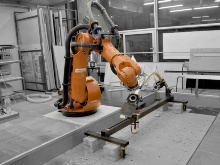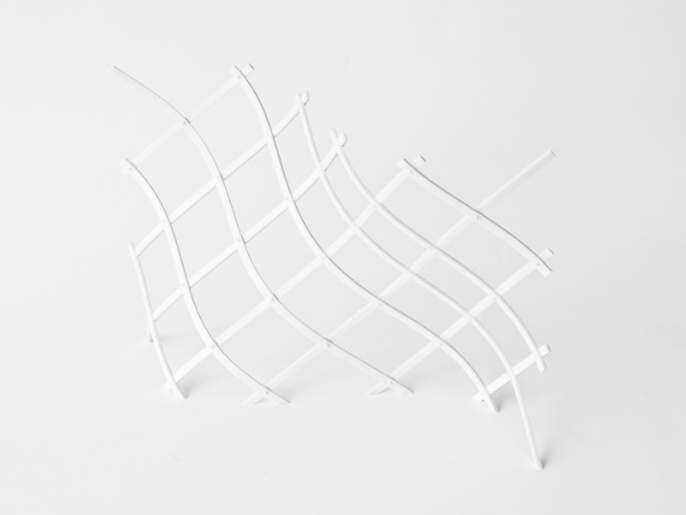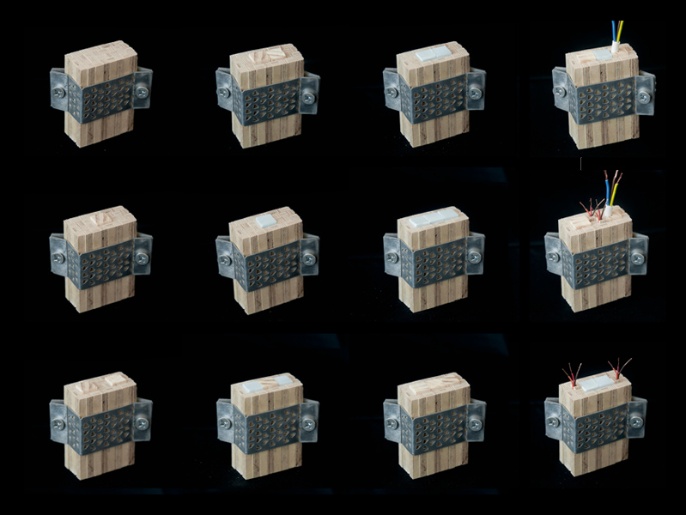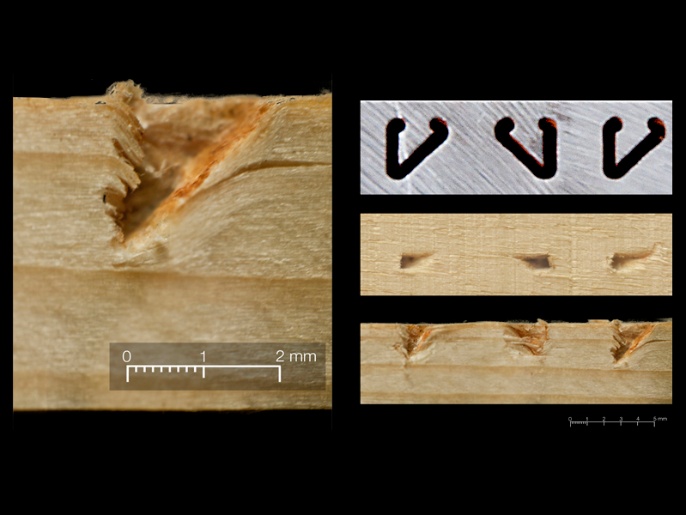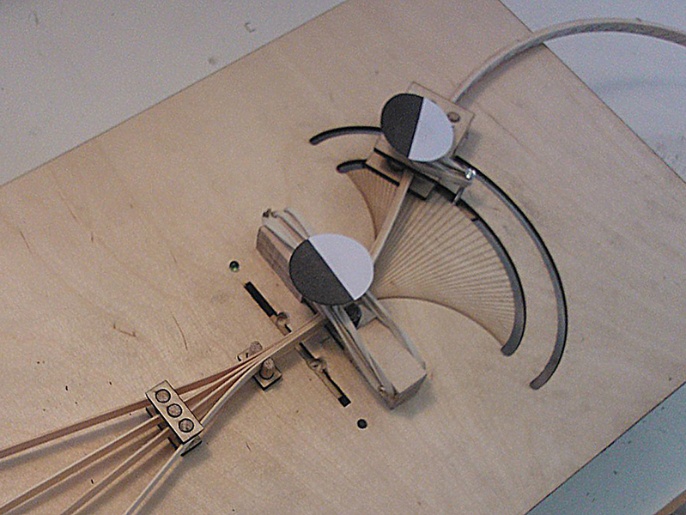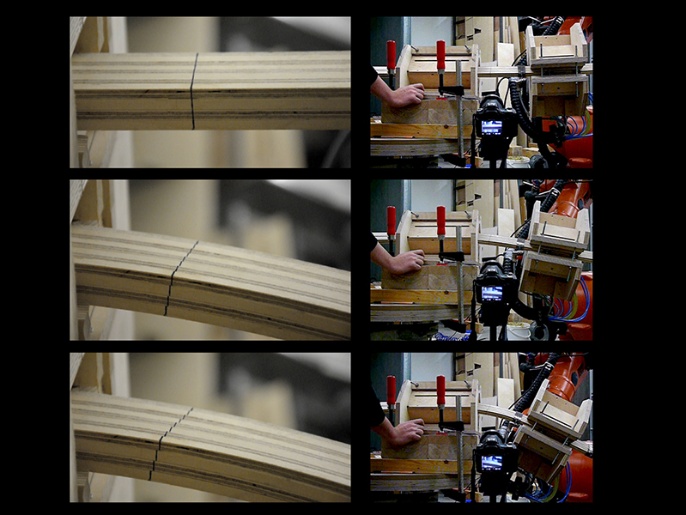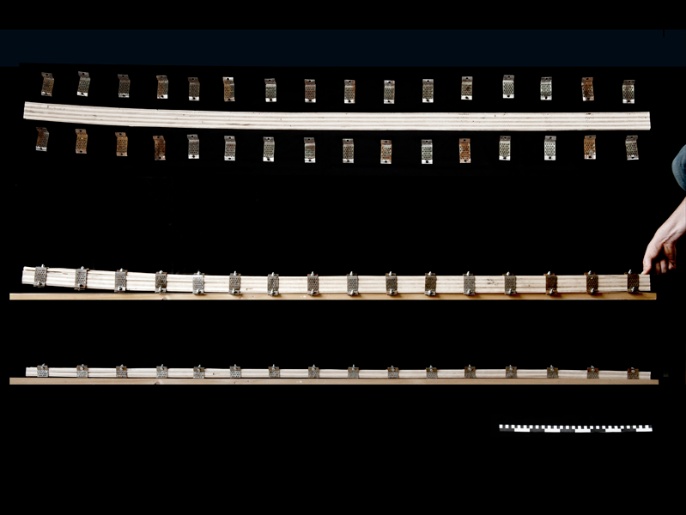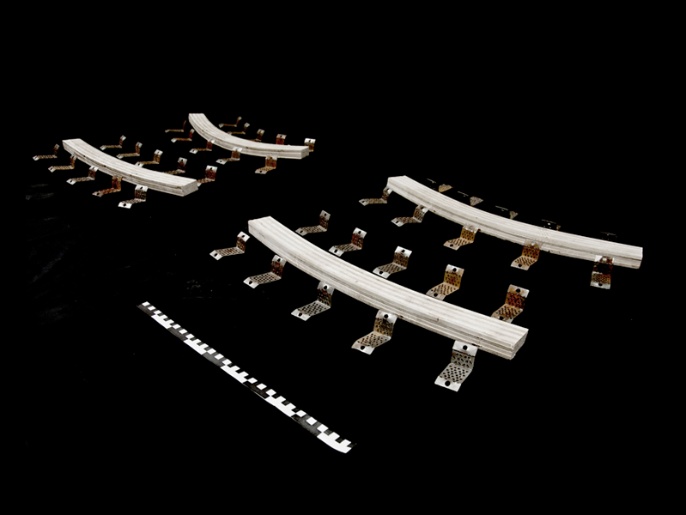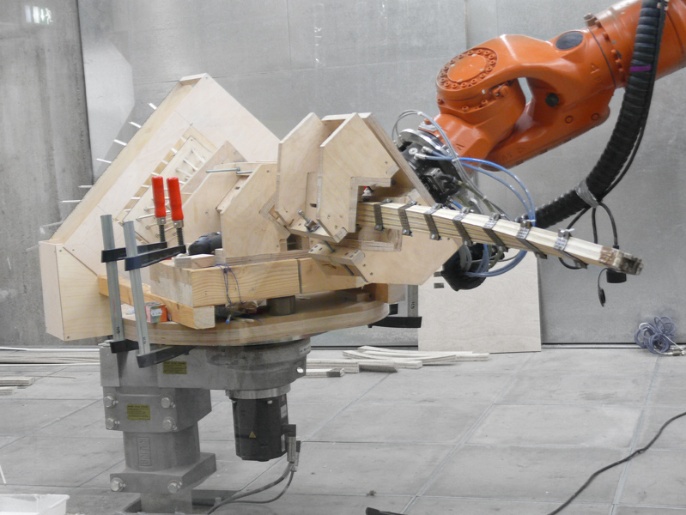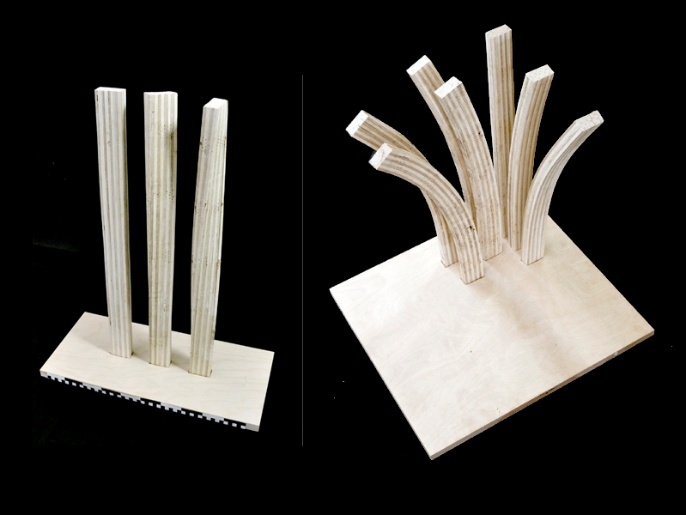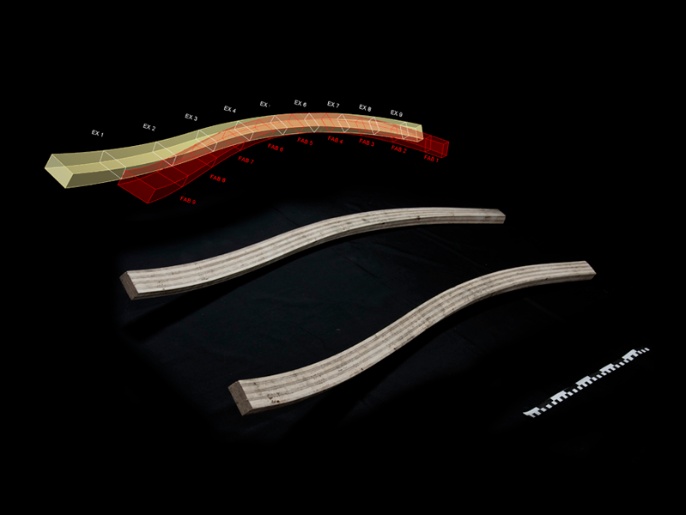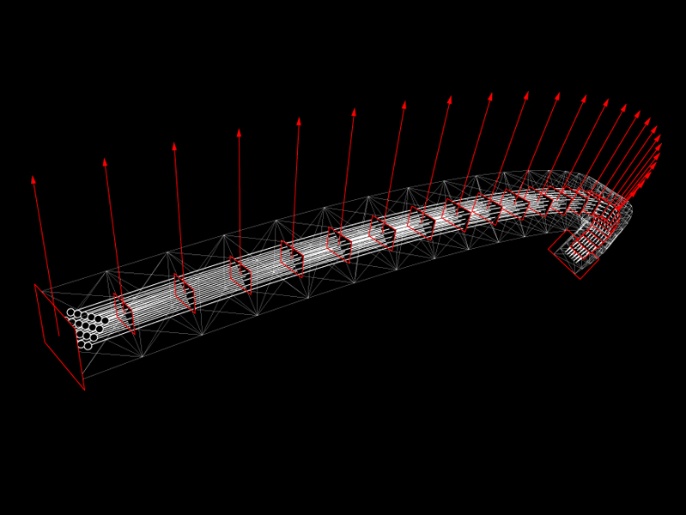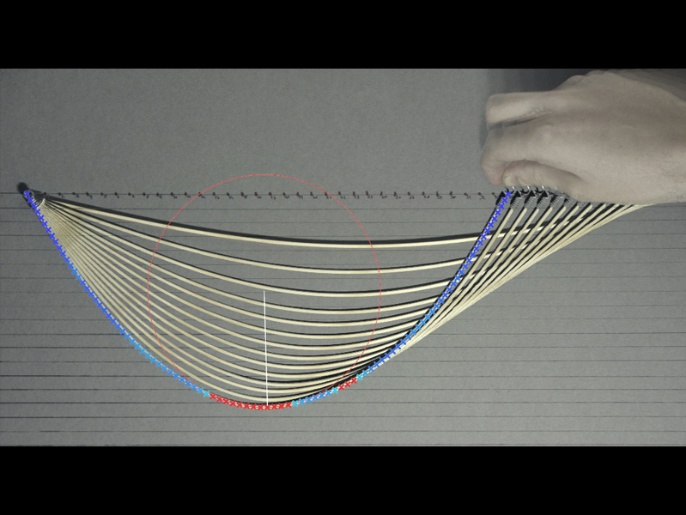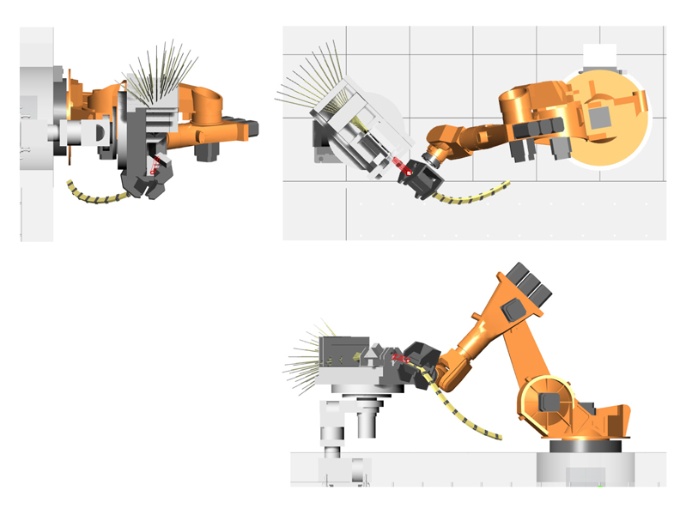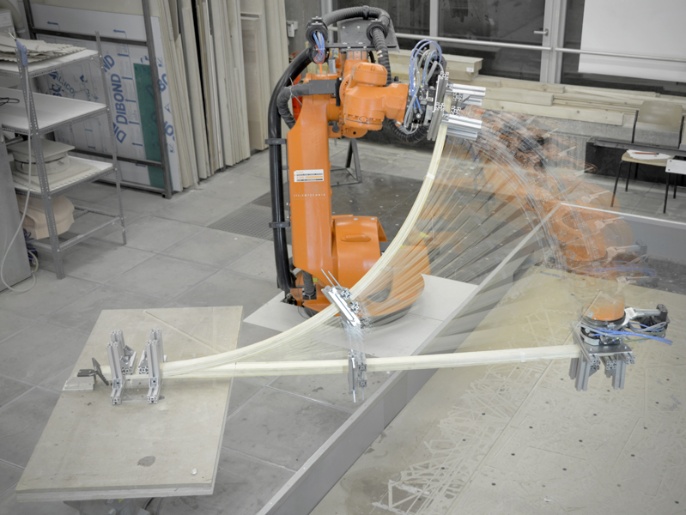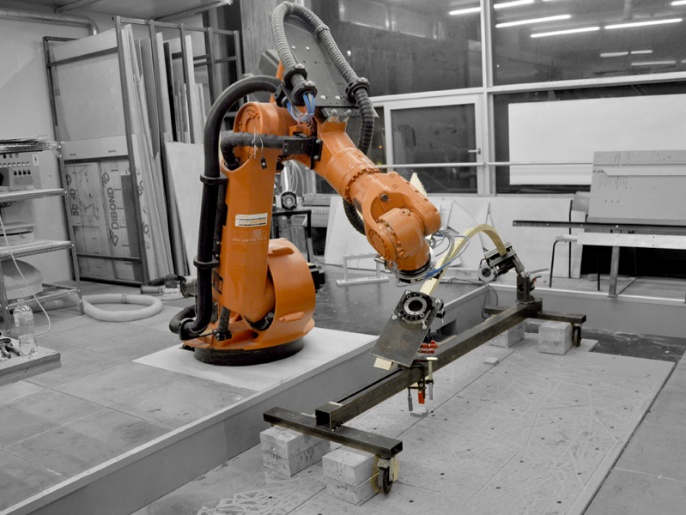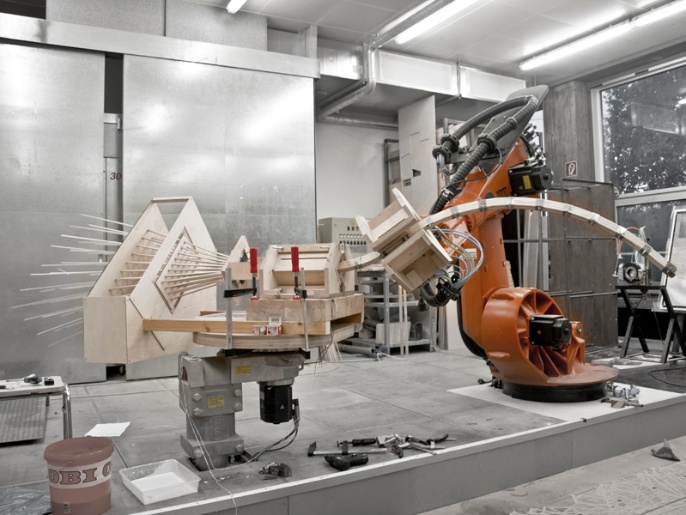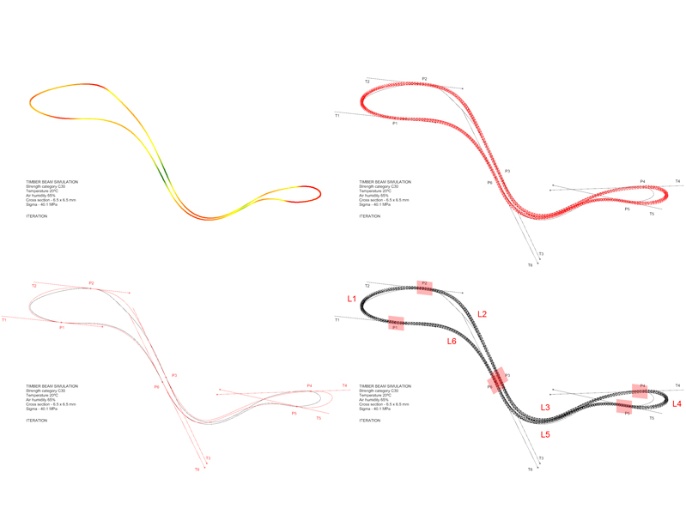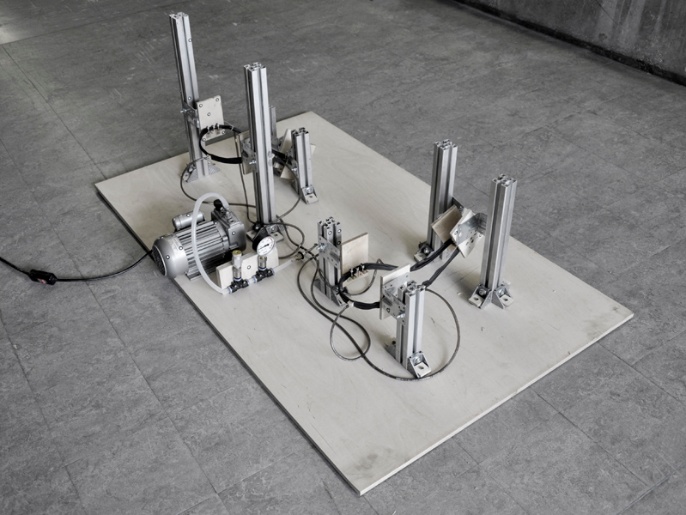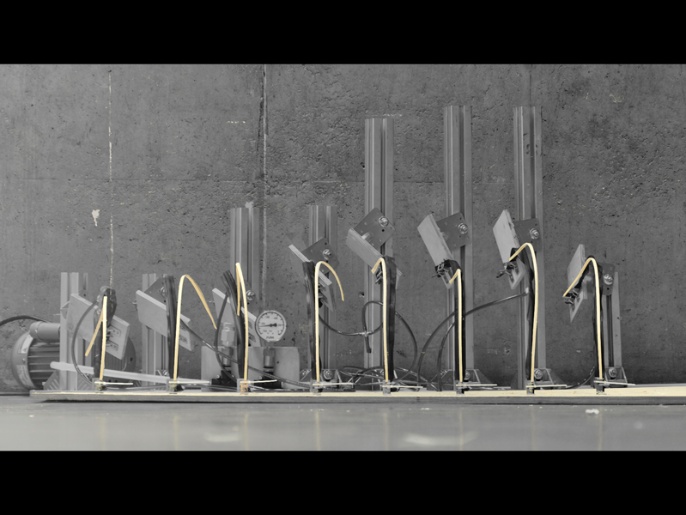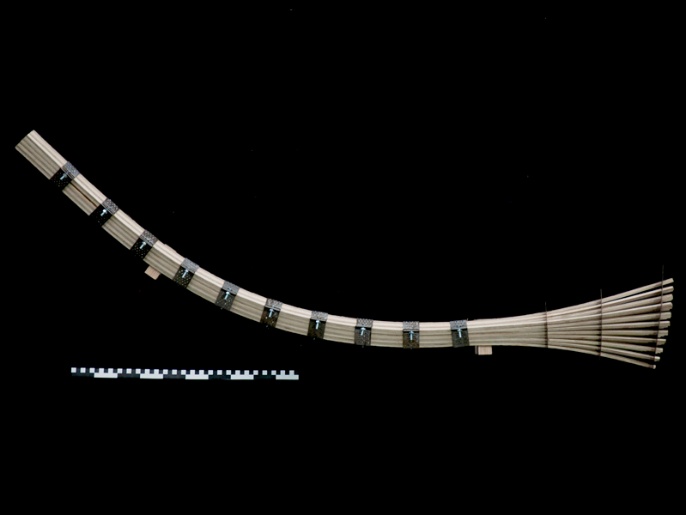Robotically Fabricated Gluelam - Additive fabrication techniques for complexly shaped glued laminated timber
The aim of the project is to find an efficient fabrication method for the production of complex double-curve glued laminated timber. Although there are established methods to produce single curved beams at an industrial level, the production of doubly curved work pieces remains to be a labor intensive and materially wasteful process.
This master thesis research project builds on previous research into robotic bending of laminated wooden work piece conducted in 2013 by O. D. Krieg and D. Correa. However, the thesis research deals with the exploration of the fabrication limits and computational simulation of a vacuum bag robotic bending method. It proposes an improvement into the utilization of the original method while introducing new fabrication methodologies based on the incremental bending technique.
The incremental robotic bending allows production of a high variety of glulam forms in an additive matter. It is limited by the material properties and the deformation caused by its own weight. Experiments have shown that self-deformation can be neglected in an interval of certain length. In the course of the research impressive results were achieved showing high performances in bending and torsion. The final result of the testing phase is the production of a doubly-curved beam component.
Incremental robotic bending opens up a promising system of an “endless” complex shape glued laminated timber fabrication which can potentially become a basis for a more effective production of complex structures. For further development, automation of the production process is crucial.
ITECH M.Sc. Thesis Project 2014: Robotically Fabricated Gluelam - Additive fabrication techniques for complexly shaped glued laminated timber
Martin Loucka
Thesis Advisers: Oliver Krieg, David Correa
Thesis Supervisor: Prof. Achim Menges
Second Supervisor: Prof. Jan Knippers
The aim of the project is to find an efficient fabrication method for the production of complex double-curve glued laminated timber. Although there are established methods to produce single curved beams at an industrial level, the production of doubly curved work pieces remains to be a labor intensive and materially wasteful process.
This master thesis research project builds on previous research into robotic bending of laminated wooden work piece conducted in 2013 by O. D. Krieg and D. Correa. However, the thesis research deals with the exploration of the fabrication limits and computational simulation of a vacuum bag robotic bending method. It proposes an improvement into the utilization of the original method while introducing new fabrication methodologies based on the incremental bending technique.
The incremental robotic bending allows production of a high variety of glulam forms in an additive matter. It is limited by the material properties and the deformation caused by its own weight. Experiments have shown that self-deformation can be neglected in an interval of certain length. In the course of the research impressive results were achieved showing high performances in bending and torsion. The final result of the testing phase is the production of a doubly-curved beam component.
Incremental robotic bending opens up a promising system of an “endless” complex shape glued laminated timber fabrication which can potentially become a basis for a more effective production of complex structures. For further development, automation of the production process is crucial.
ITECH M.Sc. Thesis Project 2014: Robotically Fabricated Gluelam - Additive fabrication techniques for complexly shaped glued laminated timber
Martin Loucka
Thesis Advisers: Oliver Krieg, David Correa
Thesis Supervisor: Prof. Achim Menges
Second Supervisor: Prof. Jan Knippers


